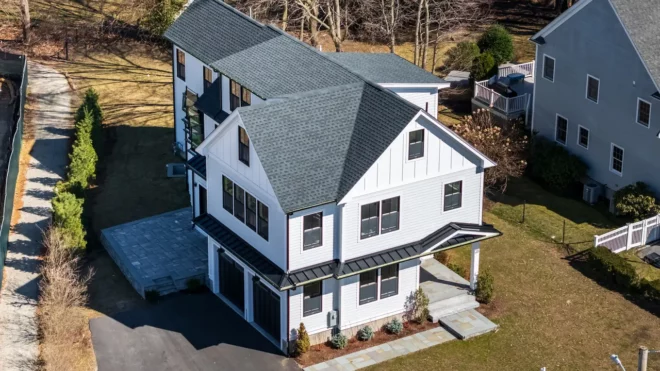1. The Importance of Asking the Right Questions
When it comes to selecting the right roofing contractor for your project, asking the right questions is crucial. By delving into the details, you can ensure that you are making an informed decision that aligns with your needs and expectations. These questions serve as your window into the contractor’s expertise, work process, and reliability.
Moreover, asking questions demonstrates your interest and commitment to the project. It shows that you take the process seriously and value open communication with your contractor. Don’t shy away from seeking clarification on any aspect that seems unclear. Remember, a well-informed decision now can save you from future headaches.
As you prepare to engage with roofing contractors, compile a list of questions that address your specific concerns. Whether it’s about their experience, materials used, or after-service support, each query plays a vital role in painting a comprehensive picture of the contractor’s capabilities. Let’s explore the essential questions you should ask before signing a contract with a roofing contractor.
2. Understanding Your Roofing Contractor’s Experience
Before entrusting your roof to a contractor, it’s paramount to understand their experience in the field. Begin by inquiring about the number of years they have been in business and the types of roofing projects they have successfully completed. A seasoned contractor will likely have a portfolio of past work that they can showcase, giving you a glimpse into their expertise.
Ask about any specialized training or certifications they possess. Certifications from roofing manufacturers often indicate a contractor’s dedication to mastering their craft and staying updated on the latest industry trends. Additionally, inquire about any subcontractors they work with and ensure they meet the same standards of experience and professionalism.
3. Clarifying Insurance and Licensing Information
When engaging with roofing contractors, never overlook the importance of insurance and licensing. These factors provide protection for both you and the contractor in case of accidents or unforeseen circumstances during the project. Request proof of insurance coverage, including liability and workers’ compensation insurance, to safeguard yourself from potential liabilities.
Verify that the contractor holds the necessary licenses to operate in your area. Licensing requirements vary by state, so it’s essential to confirm that the contractor meets all legal obligations. A licensed contractor indicates adherence to industry standards and regulations, giving you peace of mind that your project is in capable hands.
4. Getting Details on Materials and Brands Used
The quality of materials used in your roofing project can significantly impact its longevity and performance. Inquire about the specific materials and brands that the contractor intends to use. Understanding the product specifications and warranties can help you assess the durability and reliability of your new roof.
Ask the contractor about their preferred suppliers and the reasons behind their choice of materials. A reputable contractor will prioritize using high-quality materials from trusted manufacturers to ensure the longevity and structural integrity of your roof. Don’t hesitate to seek alternatives if you have specific preferences or concerns about certain products.
By discussing the materials used in your roofing project, you can make an informed decision that aligns with your budget and quality expectations. Remember, investing in superior materials now can save you from costly repairs and replacements down the line.
5. Discussing Work Timelines and Scheduling
Understanding the timeline of your roofing project is essential for planning and coordination. Inquire about the estimated start date, duration of the project, and any factors that could potentially cause delays. Clear communication regarding timelines helps in setting realistic expectations and avoiding misunderstandings down the line.
Discuss the scheduling of work activities and the contractor’s strategy for managing unexpected delays or changes in the project timeline. Flexibility and adaptability are key traits to look for in a contractor, as they can navigate unforeseen challenges without compromising the quality of work. Ensure that the proposed schedule aligns with your availability and expectations for the project.
6. Warranty Coverage and After-Service Support
Roofing warranties provide essential protection for your investment, offering coverage in case of defects or issues with the installation. Inquire about the warranty options available for your roofing project, including both manufacturer warranties on materials and workmanship guarantees from the contractor.
Understand the terms and duration of the warranty coverage, as well as any actions required to maintain its validity. Additionally, discuss after-service support with the contractor. Clarify how they handle post-installation concerns or repair requests, ensuring that you have a reliable point of contact for any future roofing needs.
7. Understanding Payment Terms and Financing Options
Clear communication regarding payment terms and financing options is essential for a smooth and transparent transaction. Discuss the payment schedule, accepted payment methods, and any upfront costs or deposits required before the project begins. Understanding the financial aspect of the project helps in avoiding misunderstandings and disputes later on.
Inquire about financing options or payment plans that the contractor offers. Flexibility in payment arrangements can make the project more manageable for you, especially for larger roofing projects. Ensure that you are comfortable with the proposed payment terms before moving forward with the contract, giving you peace of mind throughout the process.
8. Ensuring Safety Measures and Compliance with Regulations
Safety should always be a top priority when engaging with roofing contractors. Inquire about the safety measures and protocols they have in place to protect both their workers and your property during the project. A reputable contractor will adhere to industry safety standards and guidelines to ensure a secure working environment.
Discuss compliance with local building codes and regulations to avoid any legal issues or penalties associated with non-compliance. Confirm that the contractor obtains the necessary permits for the project and follows all protocols set by regulatory authorities. Prioritizing safety and compliance demonstrates the contractor’s professionalism and commitment to delivering quality work.
9. Exploring Communication Channels and Project Updates
Effective communication is key to a successful roofing project. Inquire about the channels of communication the contractor utilizes for updates and progress reports. Whether it’s through phone calls, emails, or project management tools, clear communication ensures that you are informed at every stage of the project.
Discuss your preferred mode of communication and frequency of updates with the contractor. Establishing open lines of communication from the start helps in resolving issues promptly and keeping the project on track. A contractor who values transparent communication fosters a collaborative and trusting relationship with their clients.
10. References, Testimonials, and Past Projects
Gathering references, testimonials, and insights from past projects can give you valuable information about a roofing contractor’s reputation and work quality. Ask the contractor for references from previous clients and take the time to review testimonials or online reviews. Positive feedback and a strong portfolio of past projects are indicative of a reliable and skilled contractor.
Request to see examples of past projects similar to yours to assess the contractor’s capabilities and craftsmanship. Viewing completed projects firsthand can give you a sense of the quality of work you can expect. Don’t hesitate to ask detailed questions about specific projects to gain a deeper understanding of the contractor’s expertise.
11. Inquiring About Unexpected Situations and Contingency Plans
While every effort is made to plan a roofing project meticulously, unexpected situations can arise during construction. Inquire about the contractor’s contingency plans for emergencies, adverse weather conditions, or unforeseen challenges that may impact the project timeline. Understanding how the contractor handles unexpected situations can give you confidence in their ability to adapt and mitigate risks.
12. Signing the Contract with Confidence
Before signing the contract, take the time to review all the details and ensure that your questions have been satisfactorily answered. Confirm that the contract includes all agreed-upon terms, such as project scope, timelines, materials, and payment terms. Don’t hesitate to seek clarification on any ambiguous clauses or provisions before signing on the dotted line.
Once you are satisfied with the terms and conditions outlined in the contract, sign it with confidence. Clear communication, thorough research, and asking the right questions can help you make an informed decision when selecting a roofing contractor for your project. By signing the contract confidently, you pave the way for a successful and stress-free roofing experience.





